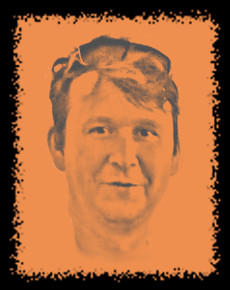Research
Cognitive psychology
My research in the area of cognitive psychology is focused on the knowledge representation, especially the imagery debate about the way of information coding in humans. I stem from the Kosslyn`s theory of analog coding, Alan Paivo`s dual-coding theory and also recent theories of Lawrence Barsalou (perceptual symbol systems and mental simulators). I tested the hypothesis of an analog and a propositional coding in the experiment based on of subject's five days stay in purely symbolic (textual) environment and subsequent analysis of one´s change in production and perception of visual mental images. I did not detect any change but there were interesting biological phenomena after the long term inhibition of specific retinal cells. Together with my students I proposed several experiments in the area of mental imagery. We researched the differences of the mental images and representations between congenitally blind persons and normal subjects. We adopted the method of free associations to uncover the influence of visual associations (time and space) to the production of word associations (time sequences). Although congenitally blind persons do not have access to the visual domain we identified only small differences in their production of verbal associations in the area of spatial terms or typical phrases comparing to the sighted participants. In the most recent experiment we uncover the relation between a verbal instruction to produce mental images and subsequent spatial organization of them.
Cognitive neuroscience
I am also interested in the experimental neuroscience specifically the analysis of the EEG signal. The research topics in this area are similar to the cognitive psychology. I focus on the neural correlates of spatial navigation especially the localization of brain structures involved in egocentric and allocetric frames of reference processing. In the series of experiments we recorded the EEG activity within the traverse through the virtual tunnel to distinguish different strategies in the navigation. The extended version of this experiment will consists of the subject`s active navigation in the 3D virtual environment. We also research neural correlates of the emotional processing in our lab. I am responsible for the preparation of the experiment scenarios and the methodology, but I also develop methods for the EEG feature selection, classification and clusterization based on the neural networks and other algorithms.
Cognitive modeling and robotics
I am interested in the knowledge representation, namely the development of multimodal representations within the learning from an environment. This approach stems from the perceptual theories of cognition and deals with the problem of grounding symbols into conceptual level. The wider scope of this approach is described in the theory of cognitive semantics. The goal is to develop models based on mentioned theories and test them in the real environment. We have been developing (togerther with partners from Comenius University) multimodal architecture for grounding symbols in the area of spatial navigation to represent static (up, down etc.) and dynamic (around, through etc.) spatial prepositions. The recent version of the model is able to represent short sentences describing the spatial relation of two objects in the space. In the next step we would like to test the architecture in the real robot simulation (e.g. iCub). The second branch of our research is focused on the representation of synonyms and homonyms. The main goal is to test the methods of unsupervised learning in the process of knowledge acquisition in terms of multimodal integration.

Briefly about me
I am a young researcher interested in the cognitive science. My research combines theories and methods of cognitive psychology, neuroscience and computational modeling. I focus on the knowledge representation in the area of spatial cognition.
Contact
Michal Vavrečka
BioDat research Group
Gerstner Laboratory
Faculty of Electrical Engineering
Czech Technical University
Karlovo namesti 13
Prague
Office: E209
email:vavrecka@fel.cvut.cz
phone: +420224357609
cell: +420608661977